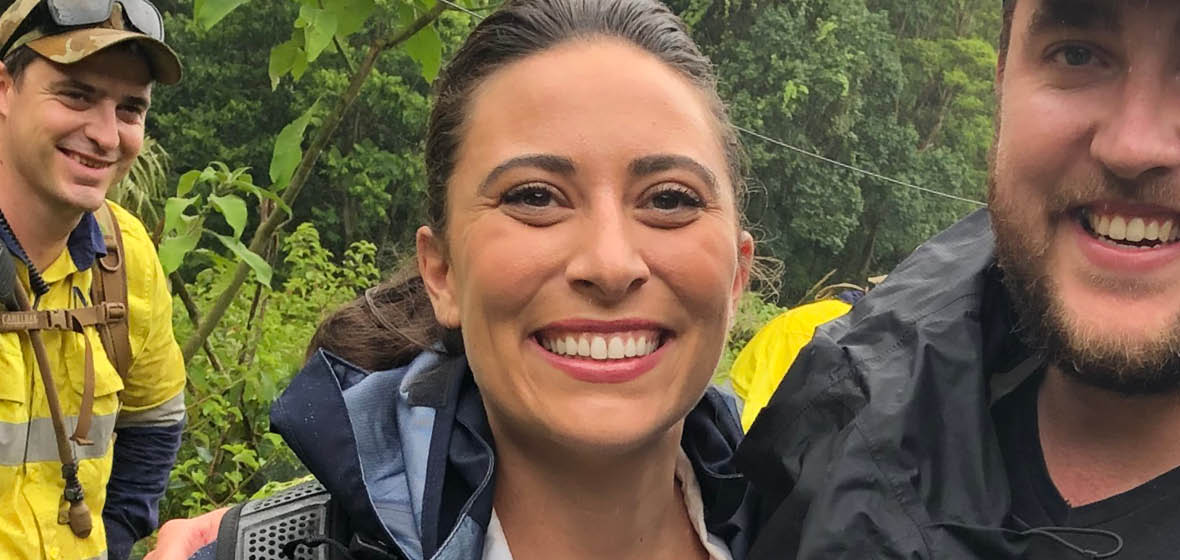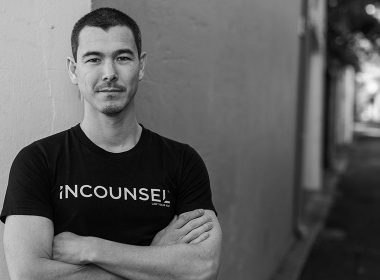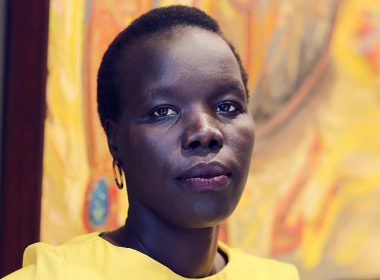LSJ meets Kennedy Award-winning journalist Emma Partridge for the inside scoop on the life of a crime and court reporter.
Emma Partridge has had her fair share of scoops throughout a 12-year journalism career. She had a by-line on the front page of The Sydney Morning Herald during her very first week at the newspaper, breaking an exclusive story on the “Jedi Council” sex ring that plagued the Australian Defence Force in 2013.
She covered the murder trial of disgraced former NSW police officer Roger Rogerson in 2016, and in 2017 exposed the suspicious death of sheep farmer Mathew Dunbar on the NSW Northern Tablelands in a gripping story about the so-called “widow of Walcha”.
Now, as we meet over lunch at Alpha in Sydney, an unwitting LSJ journalist is about to blow the lid off one of her most tightly held exclusives: she can’t write shorthand.
“It was my biggest anxiety in life. I was petrified when I started court reporting because I didn’t have shorthand,” admits Partridge.
Fortunately, modern journalists can use laptops and phones in courtrooms – so Partridge can probably tap, tweet and publish news faster than if she were scribbling it in shorthand.
But when she started out in crime reporting for the St George and Sutherland Shire Leader almost 10 years ago, before moving on to the crime and court rounds for The Sydney Morning Herald in 2013, there were strict rules for journalists to leave their phones and laptops outside court. Her lack of shorthand meant Partridge would be furiously scribbling down quotes from witnesses, parties, judges and lawyers, praying she didn’t miss anything important.
“I have literally been to work counsellors because I have such bad anxiety about not having shorthand,” Partridge says. “It was only when I found out Kate McClymont [a Walkley Award-winning senior journalist at The Sydney Morning Herald] didn’t have it that I could breathe easy.”
Partridge, who covered courts and crime at the Herald and The Daily Telegraph before switching to television when she was appointed Senior Crime Editor at Nine in January, is already seated when I arrive five minutes early for our 1pm lunch reservation. She seems the sort of person who would be early for most meetings – typical of television and radio journalists who work to time increments of minutes and seconds when broadcasting.

We’ve chosen Alpha because it’s close enough to the Downing Centre and Central Local Court for a reporter to venture out for lunch while covering a trial – but on a relatively quiet section of Castlereagh Street, and tucked away from prying eyes.
We order prawns, halloumi, garlic-buttery greens and a falling-apart lamb shoulder. Partridge takes charge – “you probably think I’m a bossy orderer” – because she is a self-confessed foodie from way back. Her mother was a restaurateur, and Partridge and her two sisters grew up living in the apartment above Balmoral restaurant Awaba, where their mother worked.
I’ve met Partridge on a rare Monday off, so we celebrate with a margarita. Salt-rimmed – for two hacks who know how to throw salt.
“Don’t put that in the article – oh, uh, well whatever. It’s my favourite drink, I don’t care if people know,” she laughs.
The cocktail serves a second purpose: to quell Partridge’s nerves as I turn my iPhone recorder on. (Such devices make shorthand a dying art, we reassure ourselves.) But shouldn’t this interview be easy for someone who is on camera most days of the week?
“Oh god, I still get so nervous,” she says. “Whenever I hear the words, ‘Reporter Emma Partridge is live at the scene,’ I feel like I’m about to vomit.”
To be fair, Partridge is not usually the subject of a story. Rather, she is on the other side of the microphone – approaching the family of a murder victim, an accused or convicted criminal, to gain insights into a crime. Stories can come from anywhere and often the best way to get a scoop, she says, is to go direct to the scene and start asking questions.
When she heard rumours of the “widow of Walcha” in 2017, Partridge drove almost 500km from Sydney to the tiny regional town of Walcha and began interviewing locals to find out how Mathew Dunbar had died. She ordered a schnitzel at the pub and a helpful bartender sent her on a Cluedo-like mission: speak to the butcher, the vet, and the girls down at the coffee shop.
“The townspeople had all this information and details,” she says. “When my story came out the police were asking me, ‘How did you know that?’ And I was like, well, the people of Walcha!”
I feel this deep responsibility to be respectful and tell the story in a sensitive way. Because you won’t get a good story if you don’t care.
Partridge discovered that Dunbar had been found with a plastic bag over his head, with poisonous gas and a cocktail of sedatives in his stomach. It sounds horrific. But these are the kind of gruesome details that are daily realities in Partridge’s line of work.
“I’ve been thinking about the trauma aspect of it a lot recently,” she admits. “I’ve been in courts and crime for about 10 years. I do find myself getting really emotional at times, and I don’t think normal people would at those times.
“If you’ve done a few days on a murder, you find yourself getting a bit teary, being a bit short with people. You might drink too much on a Friday night sometimes.”
Earlier this year, a former crime and court reporter from The Age won a landmark negligence case for suffering vicarious trauma at the hands of her employer. The journalist suffered post-traumatic stress disorder from constant exposure to crime, death and suffering – content that would be familiar to many criminal lawyers, and that has been Partridge’s bread and butter for the good part of a decade.

What is it that drives Partridge to show up for work, to be “on” from dawn till dusk while wearing multiple layers of foundation and with her hair glued together with litres of hair spray?
“I always think about this – why do I like crime reporting? It’s so traumatic, how can I like this job?” Partridge ponders.
“It is super depressing and morbid at times, but you’re also incredibly lucky to meet these survivors – the families and victims – who somehow manage to keep living after all these horrendous things have happened to them. I feel this deep responsibility to be respectful and tell the story in a sensitive way. Because you won’t get a good story if you don’t care.
“I think most people are not born psychopaths – it’s their socio-economic circumstances and things that have happened to them that led them down a criminal path. I’m always intrigued to find out – what was the back story?”
By this point, the margaritas have been sunk and Partridge inevitably starts to ask about my own back story. Time for the cheque.
We ate:
Pita bread with tzatziki, king prawns saganaki, halloumi saganaki, Greek spiced lamb shoulder. Two salt-rimmed, classic margaritas.





